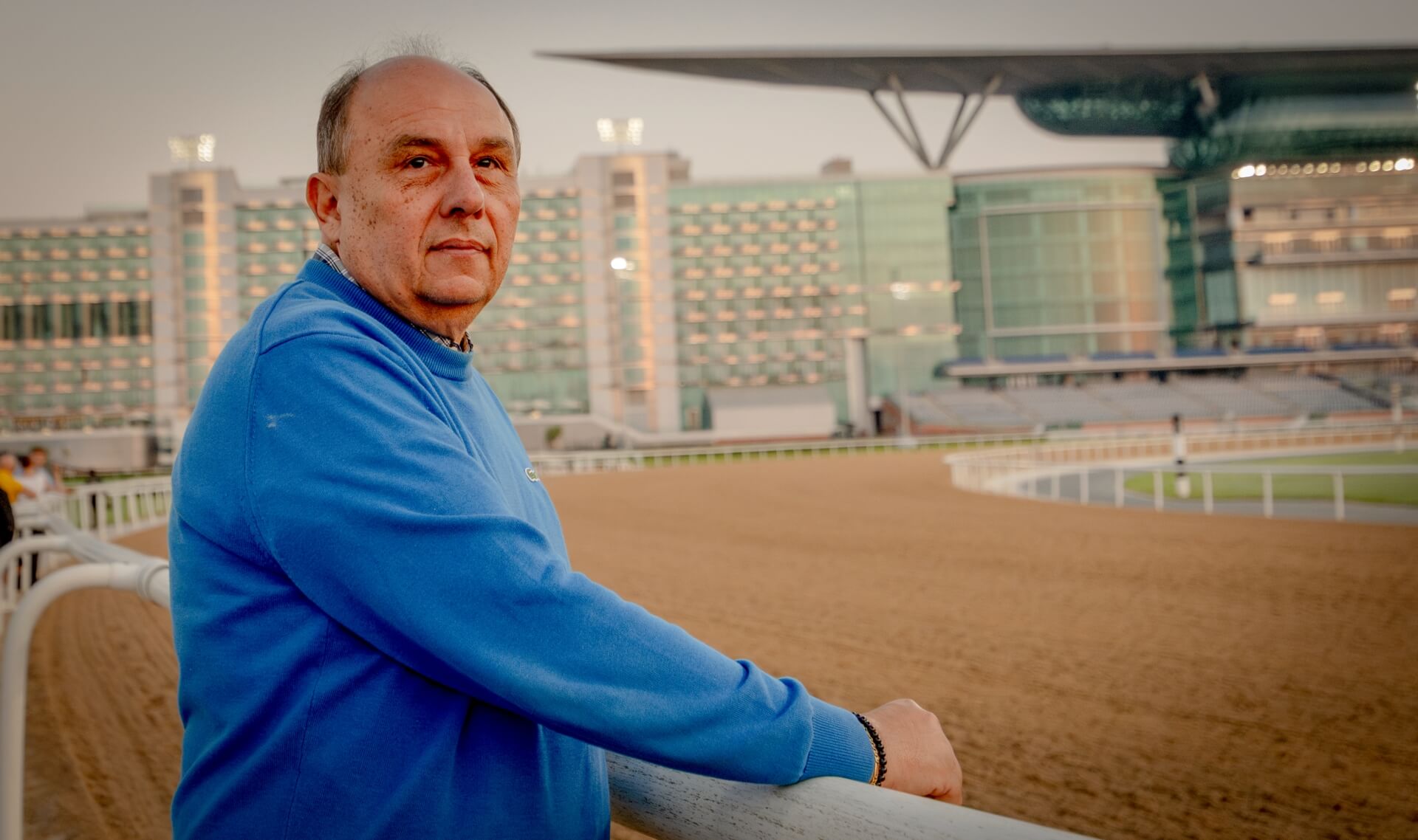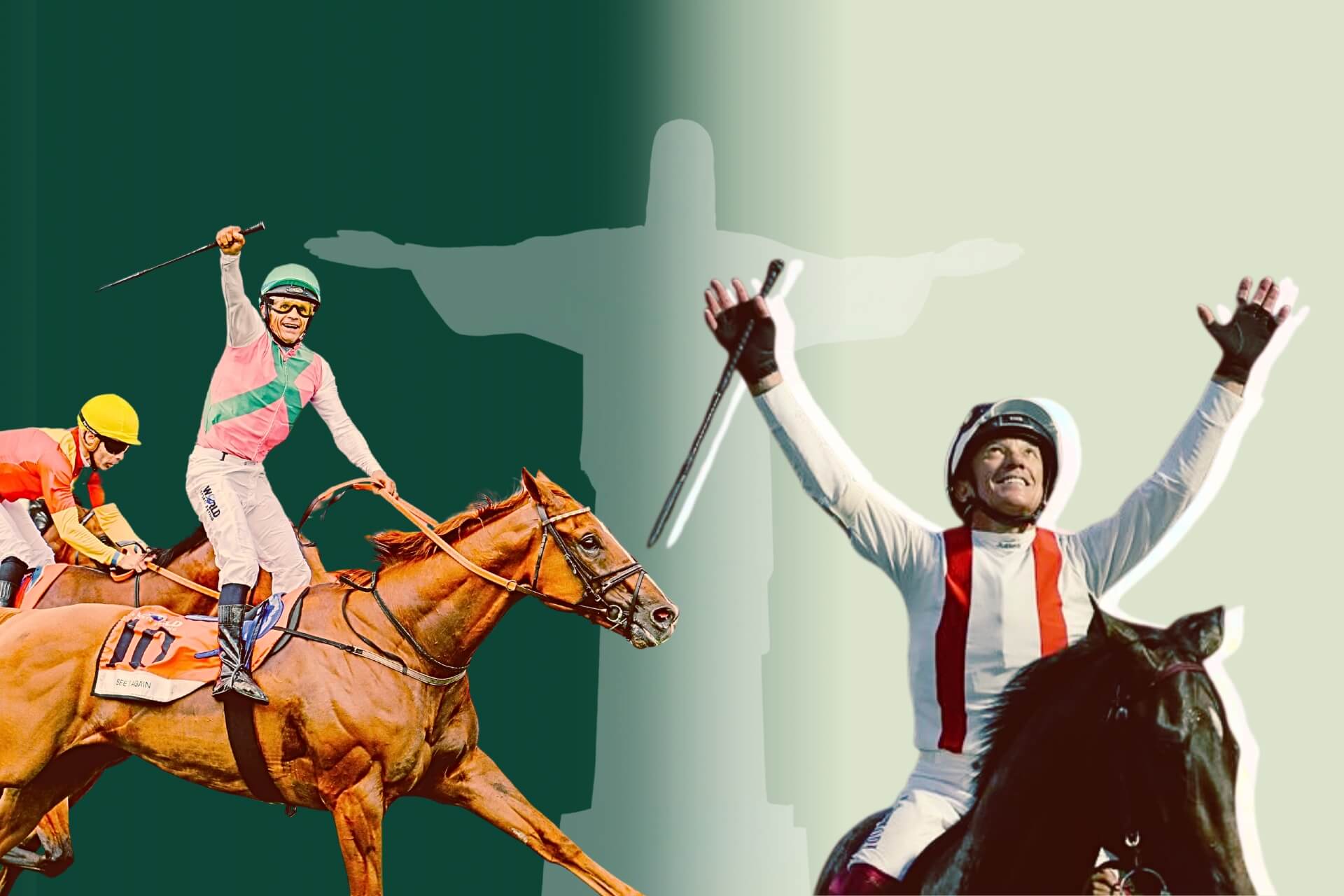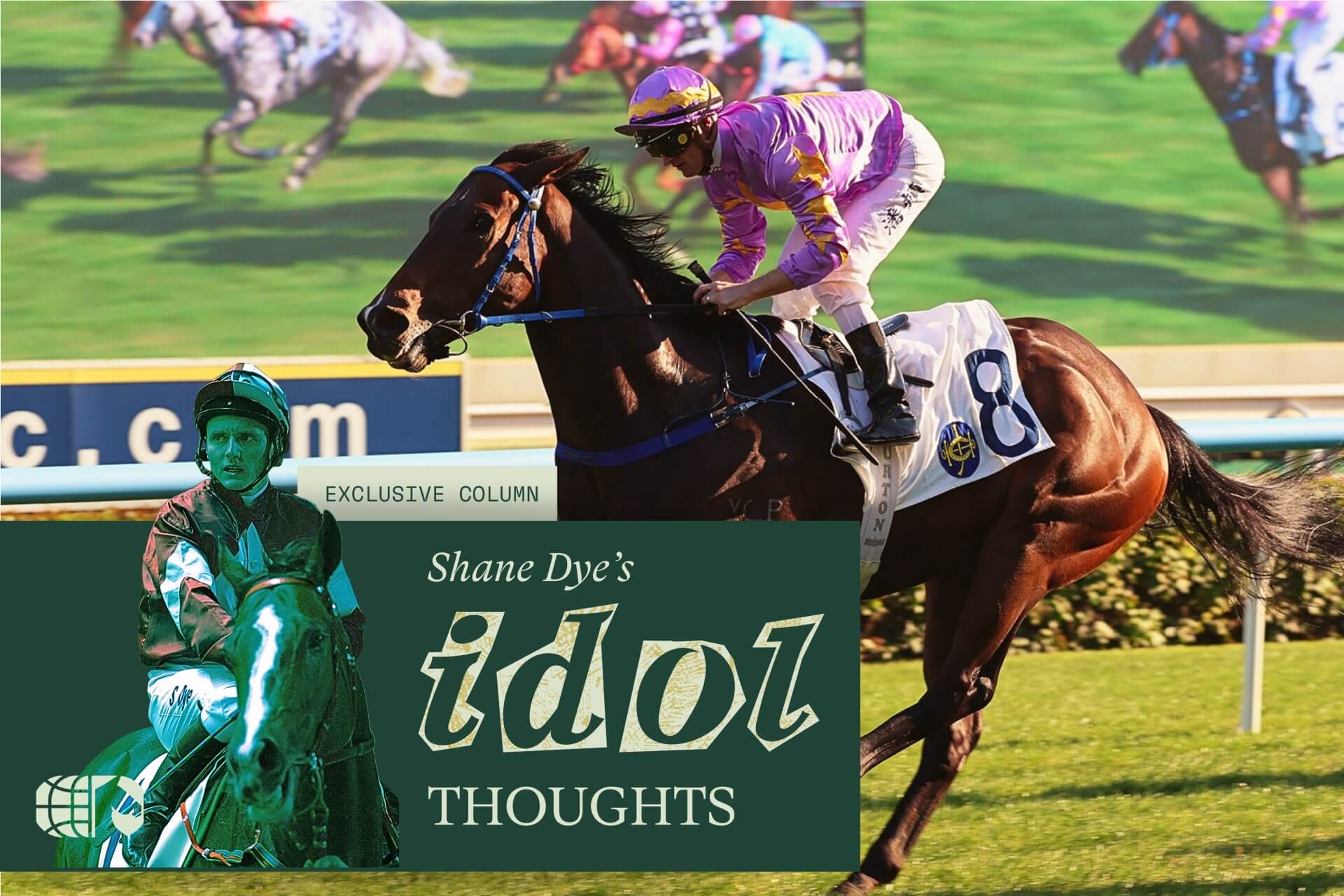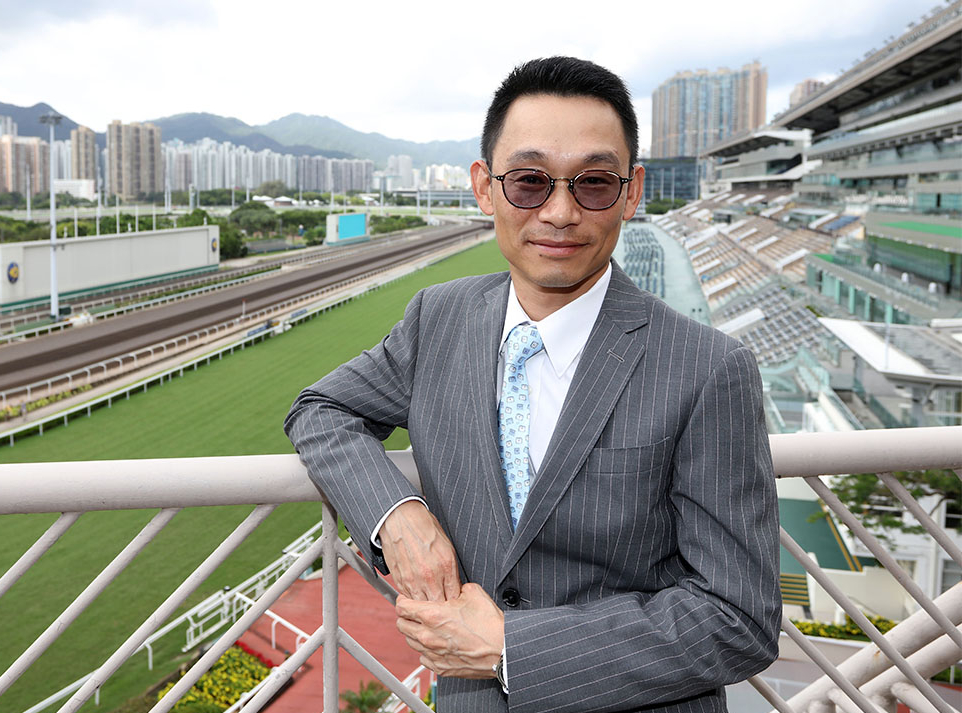36 Days Of Darkness: The Brutal Kidnapping Of Horse Trainer Antonio Sano
From being chained in a remote windowless room in Venezuela to competing on the world stage, Andrew Hawkins charts Antonio Sano’s remarkable journey.
IN THE SHADOWS of the Meydan grandstand, Antonio Sano watches intently as Il Miracolo – ‘The Miracle’ – glides across the dirt. As the horse disappears into the back stretch, Sano’s gaze drifts into the distance.
The picturesque sight in front of him, where Sano is putting his horsemanship to the test against some of the world’s elite trainers, is a far cry from a windowless room in a remote part of Venezuela that served as his home for a harrowing 36 days in 2009 at the hands of ruthless kidnappers.
“It was so horrible …” Sano tells Idol Horse in heavily accented English, tears in his eyes. “I try to forget but it is not easy, it has been 15 years but I still cry when I think of it today.”
Venezuela is not renowned as a major racing jurisdiction; it is a Part II country in the International Federation of Horseracing Authorities’ The Blue Book, which means that any stakes events staged at the nation’s premier racetrack, La Rinconada, can only be considered a Listed race for international purposes.
However, Venezuela has produced leading jockeys like Javier Castellano, Junior Alvarado and Ramon Dominguez, while 1971 Kentucky Derby and Preakness Stakes winner Canonero II began his career in the country’s capital Caracas.
“In Venezuela, there are two things that we love – baseball and horse racing,” Sano said. “We love the track. It is a part of our country.”
In the 200-year history of organised racing in Venezuela, though, no trainer has won more races locally than Sano. Known as ‘Zar del hipismo Valenciano’ – The Tsar of horse racing in Valencia (the country’s third biggest city) – he won 3,338 races from 1988 to 2009, landing 19 trainers’ championships including 18 consecutively.
“My father, grandfather and uncle all worked with horses,” he said. “It was only natural that I would too. I achieved a lot there and I learnt a lot.”
Sano’s rise to racing stardom came in a Venezuela marked by political instability. Under Hugo Chavez and his successor Nicolas Maduro, poverty dramatically increased, the economy crashed and crime skyrocketed.
In 2009, there were 673 kidnappings of a similar ilk to Sano’s in Venezuela. There were also more than 16,000 ‘express kidnappings’, where a victim is taken at gunpoint to cash machines and ordered to withdraw money before being released.
Sano had been the target of an express kidnapping – ‘el secuestro expres’ – weeks before his 36-day ordeal. He had been driven to seven ATMs over a four-hour period before he was released.
Nothing, though, could prepare him for what was to come in the early hours of July 24, 2009.
“We had been seeing a truck passing in front of our house for days,” Sano vividly recalled in his native Spanish. “When I left my house at 5:15am on July 24, seven armed men jumped out, blindfolded me and took me away.
“During those 36 days, they locked me in a small room that measured four feet by three feet and they had a mat for me to sleep on that was three feet by three feet. It was just four concrete walls, a door, no toilet, no water. I was chained to a wall the whole time. I had no idea who held me or where I was, there was no contact with any of them.”
On many days, he had nothing to eat; on good days, he was fed scraps of chicken wings with rice. He lost almost 18 kilograms and he still suffers health problems today from that period of incarceration.
For the first 15 days, his wife – engineering professor Maria Cristina – sat by the phone, waiting anxiously for a ransom call that it seemed would never come. She and their children, sons Alessandro and Maurizio and daughter Nena, thought that he must be dead if there was no demand for ransom.
“I thought of all of my children, but particularly of Nena,” he said. “She was only three at the time and a little girl without her father … it was very tough but she kept me going.”
At last, the ransom call came – but it was for far more than the family could afford.
Eventually, with the support of owners, fellow trainers, jockeys and track workers, Maria Cristina scraped together enough money to pay the ransom. The amount has never been confirmed – and Sano refused to elaborate – but it was reported at the time to be the equivalent of US$320,000.
To this day, those responsible have not been caught. It is believed that illegal gambling rings, incensed by Sano’s refusal to fix races, may have been involved.
“I was considering moving to the United States even before the kidnapping,” he said. “The way Venezuela was, there was already fear that something would happen.
“Every day during the kidnapping, I thought that I would move away from horse racing if I got out alive. I wanted nothing to do with it.”
Sano and his family were left broke from the ransom payment and after a couple of months in Italy – the country of his ancestors – he relocated to Florida’s Calder Race Course, just north of Miami. He left behind a stable of more than 160 horses.
Starting again with nothing at all, he had his first American winner in April, 2010 and quickly built a stable on the back of some of his former Venezuelan owners as well as US-based Venezuelans in awe of his reputation.
“It was a new life, but I had to think of my kids,” he said. “I had to keep my kids and my wife safe. I wouldn’t want to be in any other country. The US opened its door to us when we had nothing, it is the land of opportunity and it has provided us with many opportunities.”
Each year since 2013, his horses have earned more than USD$1.5 million in prize money, while his best horses have been Gunnevera, who was placed six times in Grade 1 races – including third to Thunder Snow in the 2019 Dubai World Cup – and Simplification, another Grade 1 placegetter who finished fourth to Rich Strike in the 2022 Kentucky Derby.
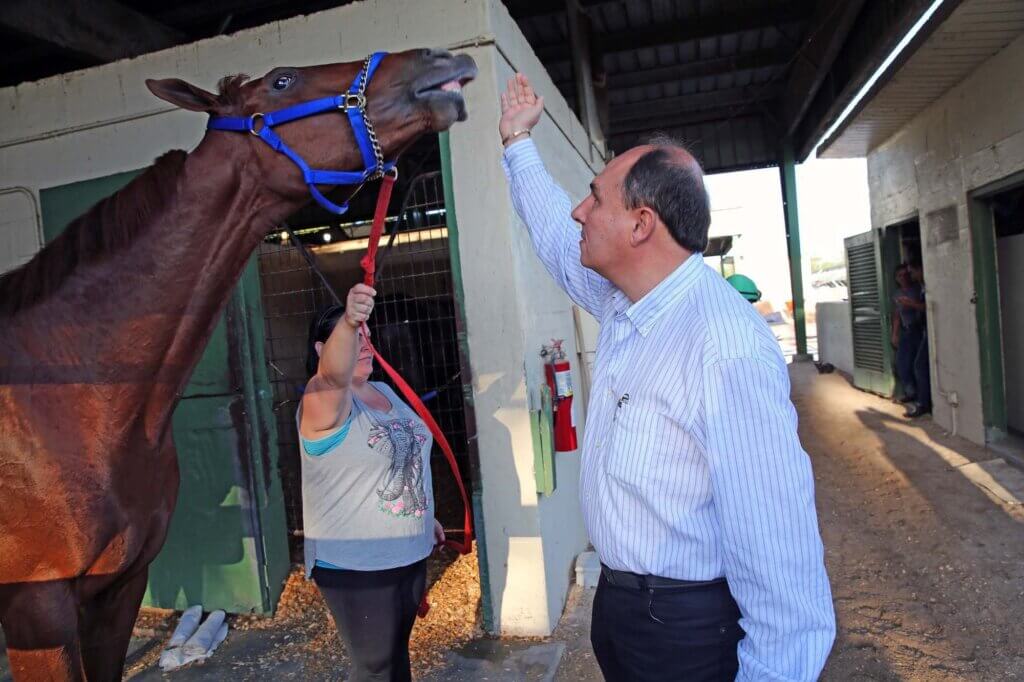
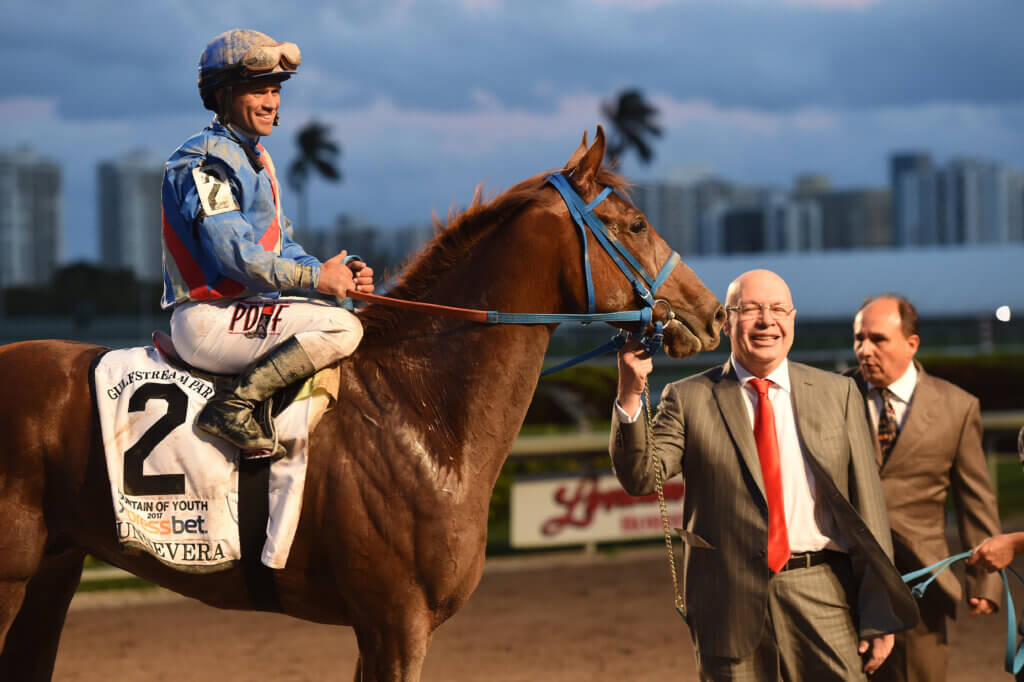
Gunnevera’s owner Salomon Del Valle was a major contributor to the ransom that brokered Sano’s release, even delivering the payment to a drop point in a vacant lot.
“I still love Venezuela, it is forever in my heart and I truly feel happy to be Venezuelan,” Sano said. “But the United States is home now and I am so thankful to everyone who has supported me. They have embraced me with open arms and have treated us so kindly.”
The day after his 62nd birthday in January, Sano prepared his 1,000th winner since leaving Venezuela. He is now the most successful Venezuelan trainer ever, based on American wins, having surpassed Manny Azpurua in 2023.
“I could never have expected to train 1,000 winners when I arrived in the United States,” he said. “It has been an incredible 15 years and it has allowed me to come here to Dubai and all over the world.”
Fittingly, as Il Miracolo walks off the Meydan track, Maria Cristina stands right beside her husband – a constant support on a journey of love, loss and salvation – and Sano reflects on the remarkable support he received from the horse racing communities of Venezuela and the United States.
“It was horrible but also incredible, as there was so much love in the darkness,” Sano said. “And my wife, she is my miracle.” ∎
